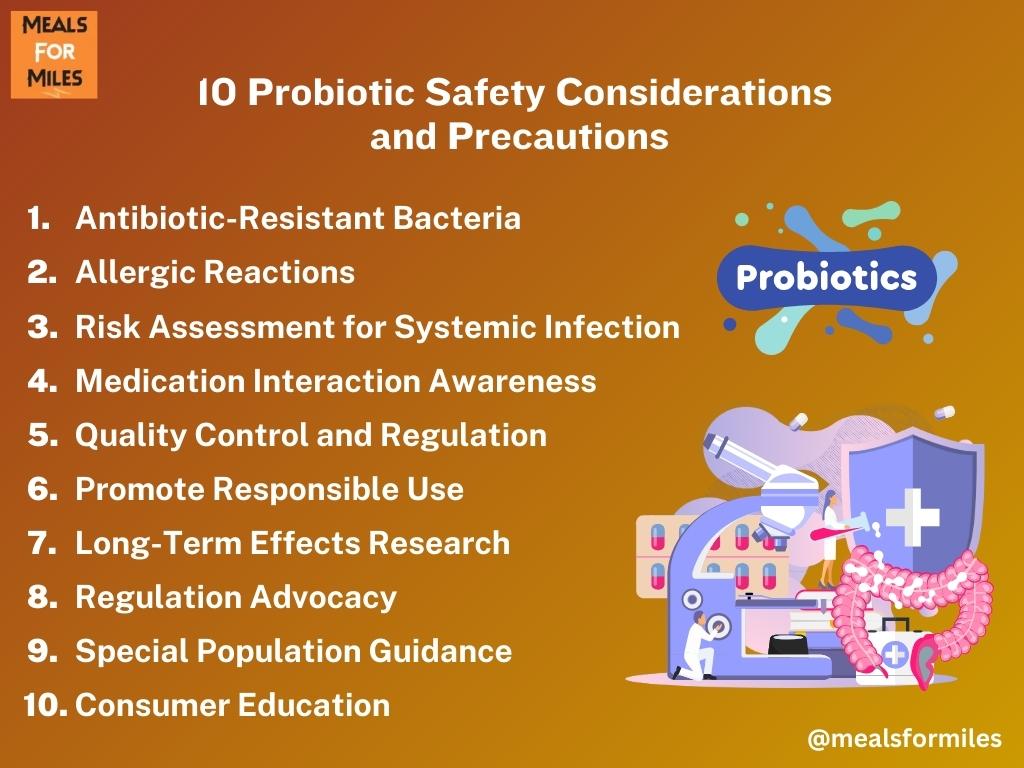Ready to optimize your gut health and unlock the benefits of probiotics and prebiotics?
Start incorporating these natural supplements into your daily routine and explore a wide range of probiotic-rich foods, dietary supplements, and prebiotic fibers that can support your digestive system.
Optimizing gut health through probiotics and prebiotics is essential for overall well-being. Probiotic bacteria promote a healthy microbiome, improve digestion, and support immunity. Prebiotic fibers nourish beneficial bacteria and reduce inflammation. Variety in probiotic-rich foods and proper supplementation are key.
However, potential risks and best practices should be considered, including consulting a physician. Combining probiotics and prebiotics can have synergistic effects, offering a range of benefits from improved digestion to enhanced mood and well-being. Understanding the microbiota’s complexity and tailoring solutions leads to a higher quality of life.
Table of Contents
- Introduction to Probiotics and Prebiotics for Gut Health
- Benefits of Probiotics and Prebiotics for Gut Health
- Types of Probiotic Bacteria
- How to Include Probiotics In Your Diet
- Positive Effects Of Prebiotic Fibers On Gut Health
- Potential Health Risks Associated With Probiotic Intake
- Best Practices For Taking Probiotics And Prebiotics
- Strategies For Enhancing The Performance Of Your Digestive System Through Supplementation
- Recent Research On The Benefits Of Combining Probiotics And Prebiotics
- Final Thoughts
Introduction to Probiotics and Prebiotics for Gut Health
The health of our gut is essential for overall wellbeing. To optimize digestive function, many people are turning to probiotics and prebiotics as natural supplements. These beneficial bacteria can help maintain a healthy balance within the gut microbiome, which enhances nutrient absorption, supports immunity, and reduces inflammation. This article will discuss the potential benefits of probiotics and prebiotics on gut health, as well as how to include them in your diet.
Benefits of Probiotics and Prebiotics for Gut Health
Probiotics and prebiotics offer numerous benefits for gut health. Probiotics are live bacteria that, when consumed, help restore the natural balance of bacteria in the gut. They can improve digestion, reduce bloating and gas, and enhance nutrient absorption. Additionally, probiotics have been linked to improved immune function and reduced risk of certain gastrointestinal disorders.
On the other hand, prebiotics are non-digestible fibers that serve as food for the beneficial bacteria in the gut. They promote the growth and activity of these bacteria, leading to a healthier gut environment. Prebiotics can also improve bowel regularity and support the production of short-chain fatty acids, which have anti-inflammatory properties. Together, probiotics and prebiotics work synergistically to optimize gut health, promoting overall well-being and potentially preventing a range of digestive issues.
Here are the 10 Strategies for Advancing Probiotics and Prebiotics in Gut Health:
- Development of Specialized Probiotic and Prebiotic Products: Explore the potential for developing specialized probiotic and prebiotic products targeting specific gut health concerns, such as strains for irritable bowel syndrome (IBS) or inflammatory bowel disease (IBD).
- Expansion into the Functional Food Market: Incorporate probiotics and prebiotics into functional foods like yogurts, cereals, and snacks to offer convenient and tasty options for improving gut health. Develop innovative products catering to different dietary preferences, such as vegan or gluten-free choices.
- Collaboration with Healthcare Professionals: Partner with healthcare professionals, including doctors, nutritionists, and dietitians, to educate consumers about probiotics and prebiotics’ benefits for gut health. Conduct joint research studies, organize educational events, and create resources to raise awareness and understanding.
- Personalized Gut Health Solutions: Explore personalized gut health solutions by providing recommendations for probiotic and prebiotic intake based on an individual’s unique gut microbiome composition. Utilize genetic testing and analysis for a more tailored approach.
- Integration of Probiotics and Prebiotics in Pet Food: Extend the benefits of probiotics and prebiotics to pets by developing pet food products that support gut health, promoting overall well-being in animals.
- Expansion into the Beauty and Skincare Industry: Develop probiotic and prebiotic-infused skincare and beauty products to enhance skin health by targeting the gut-skin connection.
- Research and Development of Novel Strains: Invest in research and development to discover novel probiotic and prebiotic strains, including exploring new sources like plant-based or marine-derived options.
- Collaboration with Pharmaceutical Companies: Collaborate with pharmaceutical companies to develop probiotic and prebiotic-based treatments for specific gastrointestinal disorders, with a focus on clinical trials to demonstrate efficacy and safety.
- Integration in Infant Nutrition: Explore integrating probiotics and prebiotics into infant formula and baby food products to support the development of a healthy gut microbiome in infants, reducing the risk of gastrointestinal issues.
- Education and Awareness Campaigns: Invest in educational campaigns to increase awareness and understanding of the benefits of probiotics and prebiotics for gut health. Collaborate with influencers, launch social media campaigns, and partner with health organizations to spread accurate information.
Types of Probiotic Bacteria
There are different types of probiotic bacteria that have different effects on gastrointestinal health. Some examples include Lactobacillus acidophilus, Bifidobacterium lactis, Saccharomyces boulardii, and Streptococcus thermophilus. Each strain has its own unique functions, such as improving nutrient absorption, supporting immunity, or reducing inflammation. Understanding how these strains work together can help maximize their potential benefits for digestive function.
Here are the 10 Strategic Directions for Harnessing Probiotic Potential:
- Probiotic Strain Combinations: Develop specialized probiotic formulas combining multiple strains to target specific digestive health issues, such as a combination of Lactobacillus acidophilus and Bifidobacterium lactis for improved nutrient absorption and overall gut health.
- Customized Probiotic Supplements: Offer personalized probiotic supplements based on individual gut microbiome analysis, tailoring strains to address unique needs and promote a healthy digestive system.
- Probiotics for Gut-Brain Axis Health: Explore probiotic strains’ potential to enhance mental health by improving the gut-brain axis. Develop products targeted at mental well-being through gut health optimization.
- Probiotics in Sports Nutrition: Investigate the role of probiotics in optimizing athletic performance and recovery, potentially utilizing strains like Streptococcus thermophilus for improved digestion and nutrient utilization.
- Probiotics for Aging Population: Develop probiotic products addressing age-related digestive issues in the elderly, targeting problems like constipation, bloating, and reduced nutrient absorption.
- Probiotics for Women’s Health: Create probiotic formulas tailored to women’s health concerns, utilizing strains like Lactobacillus rhamnosus for urinary tract infection and vaginal health management.
- Probiotics in Animal Feed: Explore probiotics’ use in animal nutrition for livestock, poultry, and pet well-being, enhancing digestion, nutrient absorption, and disease resistance.
- Probiotic Foods and Beverages: Innovate probiotic-rich food and beverage products, such as probiotic-infused yogurts, kefirs, fermented vegetables, and functional beverages.
- Probiotics in Skin Health: Investigate probiotics’ application in skincare products to improve skin health by reducing inflammation and promoting a healthy skin microbiome, targeting conditions like acne, eczema, and rosacea.
- Probiotics in Digestive Health Education: Collaborate with healthcare professionals and organizations to develop educational materials, workshops, and online resources to raise awareness and empower individuals to make informed choices about probiotic supplementation and dietary habits.
How to Include Probiotics In Your Diet
Including probiotics in your diet is important for maintaining a healthy digestive system and overall well-being. You can do this by consuming fermented foods like yogurt, kefir, sauerkraut, and kimchi, which are all rich in beneficial bacteria. Taking a probiotic supplement is another option, as it provides a concentrated dose of beneficial bacteria.
When choosing a supplement, look for one with different strains and a high CFU count. It is also important to consume prebiotic foods like whole grains, fruits, and vegetables, as they provide fuel for the probiotics to thrive in your gut. Including probiotics in your diet can improve your digestive health and strengthen your immune system.
Here are the 10 Strategies for Advancing Probiotic Integration in Diverse Dietary Contexts:
- Collaborate with Food Manufacturers: Suggest partnering with food manufacturers to develop new products fortified with probiotics, including probiotic-infused beverages, snacks, and probiotic-enhanced versions of popular foods.
- Educate Healthcare Professionals: Advocate for educating healthcare professionals, including doctors, nutritionists, and dietitians, about the benefits of probiotics. Provide educational materials, host webinars, workshops, and sponsor continuing education programs to ensure they can offer informed guidance to patients.
- Develop Personalized Probiotic Plans: Propose the development of personalized probiotic plans by analyzing individuals’ unique gut microbiomes and recommending specific probiotic strains and doses to optimize digestive health.
- Promote Probiotics for Specific Health Conditions: Invest in research and development to create probiotic formulations targeted at managing specific health conditions like irritable bowel syndrome, inflammatory bowel disease, and mental health disorders. Promote these formulations to healthcare professionals and consumers.
- Expand Probiotic Options for Dietary Needs: Develop probiotic options tailored to specific dietary needs, such as vegan or gluten-free diets. Create probiotic supplements or fermented foods that are free from animal products or gluten, making them accessible to a wider range of individuals.
- Explore Probiotics in Skincare: Suggest exploring the development of probiotic skincare products, such as creams, serums, and cleansers, that harness the beneficial effects of probiotics on the skin microbiome.
- Foster Research Partnerships: Encourage collaborations and partnerships between probiotic manufacturers and research institutions to further understanding of probiotics’ benefits and mechanisms. This can lead to the development of more effective and targeted probiotic products.
- Promote Probiotics for Children and Infants: Advocate for the inclusion of probiotics in children’s food products like yogurts or snacks and educate parents about the benefits of incorporating probiotics into their children’s diets for immune system and digestive health support.
- Market Probiotics for Travel and Antibiotic Use: Suggest the development of probiotic products specifically marketed for travelers or individuals undergoing antibiotic treatment to help restore and maintain a healthy gut microbiome during these challenging periods.
- Emphasize Quality Control: Stress the importance of rigorous quality control measures for probiotic products, including testing, verification of stated strains and CFU counts, and ensuring freedom from contaminants. Maintaining consumer trust and confidence in probiotic products is paramount.
Positive Effects Of Prebiotic Fibers On Gut Health
Prebiotic fibers have positive effects on gut health by increasing the levels of beneficial bacteria and reducing the presence of harmful bacteria. Research shows that prebiotic intake can potentially prevent infections caused by pathogens like salmonella and campylobacter. Certain types of indigestible polysaccharides stimulate the growth of beneficial bacteria, leading to the production of butyrate, which is essential for the colon’s cells and creates a protective barrier against pathogens. This fiber plays a crucial role in maintaining balance in the colon and large intestine, where the microbiota is most concentrated.
Here are the 10 Strategies for Maximizing the Impact of Prebiotic Fibers on Gut Health:
- Development of Prebiotic Fiber Supplements: Create prebiotic fiber supplements targeting individuals seeking to improve gut health, particularly those with digestive issues or a history of gastrointestinal infections.
- Expansion of the Functional Food Industry: Develop and market products fortified with prebiotic fibers, such as yogurts, granola bars, and breakfast cereals, to cater to health-conscious consumers seeking gut-friendly options.
- Collaboration Between Food Manufacturers and Healthcare Professionals: Collaborate between food manufacturers and healthcare professionals to educate the public about prebiotic fibers’ positive effects on gut health. This can involve joint marketing campaigns and educational events.
- Integration of Prebiotic Fibers in Medical Treatments: Integrate prebiotic fiber intake into medical treatments, such as prescribing prebiotic fiber supplements or recommending prebiotic-rich diets to patients undergoing antibiotic treatments to counteract negative impacts on the gut microbiota.
- Research and Development of New Prebiotic Fibers: Continue research into prebiotic fibers, potentially discovering more potent types of indigestible polysaccharides. This opens opportunities for innovative products targeting specific gut health concerns.
- Expansion of Gut Health Testing Services: Address the growing demand for gut health testing services, providing personalized prebiotic fiber intake recommendations based on individuals’ gut microbiota compositions.
- Integration of Prebiotic Fibers in Animal Feed: Improve the gut health of livestock and pets by incorporating prebiotic fibers into animal feed, potentially reducing antibiotic use in animal farming.
- Development of Targeted Probiotic and Prebiotic Combinations: Create synergistic probiotic and prebiotic combinations for gut health, offering dietary supplements or functional foods.
- Integration of Prebiotic Fibers in Beauty and Skincare Products: Explore the potential benefits of prebiotic fibers for skin health and develop beauty and skincare products that incorporate prebiotic fibers for a holistic approach to skin wellness.
- Education and Awareness Campaigns: Play a crucial role in educating the public about the positive effects of prebiotic fibers on gut health through campaigns, webinars, and partnerships with healthcare professionals. Raise awareness of the importance of including prebiotic fibers in one’s diet for optimal gut health.
Potential Health Risks Associated With Probiotic Intake
While probiotics are generally considered safe for most individuals, there are potential health risks associated with their intake. Some individuals may experience gastrointestinal discomfort such as bloating, gas, or diarrhea. This is especially common when starting probiotic supplements or consuming high doses.
Additionally, people with weakened immune systems or underlying health conditions should exercise caution when taking probiotics, as they may pose a risk of infection. It is important to consult a healthcare professional before starting any probiotic regimen, especially if you have any existing health concerns or are taking medications that may interact with probiotics.
Here are the 10 Probiotic Safety Considerations and Precautions:
- Development of Antibiotic-Resistant Bacteria: Industry experts should promote responsible probiotic use and raise awareness about the potential development of antibiotic-resistant bacteria. Encourage healthcare professionals to carefully evaluate the need for probiotics in conjunction with antibiotics and consider alternative approaches when appropriate.
- Allergic Reactions: Emphasize the importance of allergy awareness and potential allergic reactions to specific probiotic strains. Industry experts can contribute to education campaigns and labeling practices to help consumers identify allergens in probiotic products.
- Risk Assessment for Systemic Infection: Advocate for rigorous risk assessment protocols in healthcare settings, particularly for critically ill patients and those with weakened immune systems. Ensure that healthcare professionals are well-informed about the potential risks associated with probiotics in these populations.
- Medication Interaction Awareness: Collaborate with healthcare professionals to create guidelines for identifying potential interactions between probiotics and medications. Encourage open communication between patients and healthcare providers to ensure safe probiotic use in conjunction with other treatments.
- Quality Control and Regulation: Industry experts can actively participate in advocating for stricter regulations and quality control measures in the probiotic industry. This can help ensure that probiotic products meet safety and potency standards, reducing the risk of contamination or mislabeling.
- Promote Responsible Use: Educate the public about responsible probiotic use, including proper dosages and the importance of consulting healthcare professionals before starting any probiotic regimen. This can help prevent disruptions in gut microbiota balance.
- Long-Term Effects Research: Support and conduct research to explore the long-term effects of probiotic use. By contributing to the scientific understanding of probiotics, industry experts can provide valuable insights into potential benefits and risks associated with extended use.
- Regulation Advocacy: Advocate for regulatory bodies to establish guidelines for probiotic labeling, ensuring that consumers receive accurate information about product strains, potency, and health claims.
- Special Population Guidance: Provide specific guidelines and recommendations for vulnerable populations, such as infants, pregnant women, and the elderly, to address their unique health concerns and ensure their safety when using probiotics.
- Consumer Education: Develop educational resources and campaigns to help consumers make informed decisions about probiotic products, including potential risks and benefits. These resources can empower individuals to navigate the probiotic market safely and responsibly.
Best Practices For Taking Probiotics And Prebiotics
When it comes to incorporating probiotics and prebiotics into our daily routine, there are a few best practices to keep in mind. Firstly, it is important to consult with a healthcare professional to understand which strains of probiotics and prebiotics would be most beneficial for our specific needs. Additionally, it is recommended to start with a lower dosage and gradually increase it to allow our bodies to adjust.
Taking probiotics and prebiotics with food can also enhance their effectiveness as they are better able to survive the acidic environment of the stomach. Lastly, consistency is key – taking them regularly, ideally at the same time each day, can help maintain a healthy balance of gut bacteria. Overall, understanding our individual requirements, starting slow, taking them with food, and being consistent are all essential best practices for incorporating probiotics and prebiotics into our daily routine.
- Customized Probiotic and Prebiotic Recommendations: To ensure optimal results, consulting with healthcare professionals who specialize in gut health is a best practice. These professionals can assess individual needs and recommend specific strains of probiotics and prebiotics tailored to a person’s unique gut microbiome.
- Gradual Dosage Increase: Starting with a lower dosage of probiotics and prebiotics and gradually increasing it is advisable. This approach helps the body acclimate to the new bacteria and fiber, minimizing the risk of digestive discomfort or other side effects.
- Timing and Coordination with Meals: Taking probiotics and prebiotics with food enhances their effectiveness. Consuming them alongside a meal provides protection against stomach acid, increasing the survival rate of beneficial bacteria. Certain foods, like fiber-rich fruits and vegetables, can also serve as a source of prebiotics, further supporting the growth of beneficial gut bacteria.
- Consistency and Regularity: Consistency is crucial when incorporating probiotics and prebiotics into a daily routine. Taking them at the same time each day establishes a habit and ensures a steady supply of beneficial bacteria in the gut. This regularity is essential for maintaining a healthy balance of gut bacteria, as the effects of probiotics and prebiotics are cumulative and long-term.
- Monitoring and Adjusting: Individuals should monitor their response to probiotics and prebiotics, noting changes in digestion, energy levels, immune function, and overall well-being. If negative effects or a lack of noticeable benefits occur, adjustments to the dosage, strains, or types of probiotics and prebiotics may be necessary.
- Addressing Individual Requirements: Recognizing the uniqueness of each individual’s gut microbiome, experts should emphasize personalized approaches. This may involve experimenting with different strains and combinations of probiotics and prebiotics to determine what works best for each person.
- Quality Assurance: Promoting the use of high-quality probiotic and prebiotic supplements is paramount. Ensuring that products undergo rigorous testing for potency, purity, and viability is crucial for their effectiveness.
- Education and Awareness: Industry experts can raise awareness of probiotics and prebiotics’ benefits through educational campaigns. This includes disseminating information about the connection between gut health and overall well-being, as well as the roles of probiotics and prebiotics in supporting digestive health, immune function, and mental well-being.
- Integration with Other Healthy Lifestyle Practices: Encouraging individuals to adopt a holistic approach to health is important. Experts should stress the importance of combining probiotics and prebiotics with other healthy lifestyle practices, including regular exercise, a balanced diet rich in fiber and whole foods, stress management techniques, and sufficient sleep.
- Research and Innovation: Staying informed about the latest scientific research and advancements in probiotics and prebiotics is crucial for industry experts. This knowledge enables them to provide evidence-based recommendations and guidance to individuals seeking to incorporate these beneficial bacteria and fibers into their daily routine.
Strategies For Enhancing The Performance Of Your Digestive System Through Supplementation
To enhance the performance of your digestive system through supplementation, it is important to consider several strategies. Firstly, staying adequately hydrated with water, tea, or coffee helps move contents through the stomach and bowels, aiding in nutrient breakdown. Secondly, consuming high-fiber foods like vegetables, fruits, cereals, nuts, and seeds adds bulk to stool and helps it pass through the intestine more easily. Avoiding processed junk and fried foods reduces intake of artificial additives and preservatives. Lastly, regular exercise keeps the bowels moving and promotes overall digestive health. By combining these strategies, you can improve your digestive functioning and overall well-being.
Here are the 7 Strategies to Enhance the Performance of Your Digestive System Through Supplementation:
- Probiotics: Incorporating probiotics into your daily routine can support the growth of beneficial bacteria in your gut, which can improve digestion and nutrient absorption. Look for high-quality probiotic supplements that contain a variety of strains and a sufficient number of colony-forming units (CFUs).
- Digestive Enzymes: Supplementing with digestive enzymes can be helpful for individuals with digestive disorders or those who struggle with breaking down specific types of food. Protease, amylase, and lipase are common enzymes that aid in the breakdown of proteins, carbohydrates, and fats, respectively.
- Herbal Remedies: Certain herbs have been traditionally used to support digestive health. For example, ginger can alleviate nausea and bloating, while peppermint can relieve indigestion and reduce gas. Consider incorporating herbal supplements or teas that contain these beneficial herbs.
- Omega-3 Fatty Acids: Omega-3 fatty acids have anti-inflammatory properties that can help reduce inflammation in the gut and promote a healthy digestive system. Consider taking fish oil supplements or incorporating omega-3-rich foods like fatty fish, flaxseeds, and walnuts into your diet.
- Gut-Healing Nutrients: Nutrients like glutamine, zinc, and vitamin D play crucial roles in maintaining the integrity of the gut lining. These nutrients can help repair damage caused by inflammation or poor dietary choices. Consider adding supplements or foods rich in these nutrients to support gut healing.
- Elimination Diets: If you suspect that certain foods are causing digestive issues, you may want to consider eliminating them from your diet for a period of time. This can help identify potential food sensitivities or intolerances that could be affecting your digestive system. Working with a healthcare professional or registered dietitian can help you develop a suitable elimination diet plan.
- Stress Management: Chronic stress can negatively impact digestion. Incorporating stress management techniques like meditation, yoga, or deep breathing exercises can help reduce stress levels and improve overall digestive function.
Recent Research On The Benefits Of Combining Probiotics And Prebiotics
Recent research has highlighted the benefits of combining probiotics and prebiotics in promoting gut health. Probiotics are live bacteria that offer health benefits, while prebiotics serve as food for these bacteria. Studies show that this combination enhances the survival and colonization of probiotics in the gut, leading to improved digestion and nutrient absorption.
It also strengthens the immune system, reduces gastrointestinal infections, and alleviates symptoms of digestive disorders. Additionally, probiotics and prebiotics show promise in managing weight, improving mental health, and reducing inflammation. As research continues, the potential for this combination to positively impact overall health becomes increasingly clear.
Here are the 5 Strategies for Leveraging Probiotic and Prebiotic Research in Health and Wellness:
- Developing Specialized Probiotic and Prebiotic Supplements: Given the growing awareness of the pivotal role gut health plays in overall well-being, there is a burgeoning demand for targeted solutions. Companies and supplement manufacturers can seize the opportunity to create specialized probiotic and prebiotic supplements tailored to specific health conditions. This may encompass products designed to address digestive disorders, boost immune system function, support mental health, or aid in weight management.
- Expanding Product Offerings: Food and beverage companies are well-positioned to integrate probiotics and prebiotics into their existing product lines. Incorporating these beneficial components into items such as yogurt, fermented foods, kombucha, and functional beverages aligns with consumer interest in enhancing gut health. Offering convenient and readily accessible options can further contribute to improved digestion and overall wellness.
- Collaboration between Food and Pharmaceutical Industries: The convergence of the food and pharmaceutical sectors offers an exciting avenue for innovation. Collaborations between these industries could lead to the development of novel products and drug delivery systems that incorporate probiotics and prebiotics. These innovations may target specific health conditions, such as inflammatory bowel disease or irritable bowel syndrome, potentially revolutionizing treatment approaches.
- Educating Healthcare Professionals: Healthcare professionals play a pivotal role in guiding patients toward better gut health. To facilitate this, companies can invest in educational initiatives aimed at healthcare practitioners. By providing comprehensive training and informative materials, these professionals can gain a deeper understanding of the benefits of probiotics and prebiotics. Consequently, they can recommend and prescribe appropriate products to patients, further bolstering the adoption of probiotic and prebiotic-based interventions.
- Conducting Further Research: While the current body of research underscores the promising potential of combining probiotics and prebiotics, there is still much to uncover. Companies and research institutions can invest in comprehensive studies to delve into the intricate interactions between these components and their impact on various health conditions. Exploring areas such as mental health, autoimmune diseases, and metabolic disorders can yield a more profound understanding of the underlying mechanisms and help substantiate the observed benefits from initial research findings.
Final Thoughts
Maintaining a healthy gut is crucial for overall well-being. Probiotics and prebiotics offer valuable support by promoting a balanced gut microbiome, reducing inflammation, and enhancing digestion. Combining them can provide synergistic benefits. However, it’s important to start with lower doses, consult healthcare professionals, and monitor your response. Practicing best storage and handling practices ensures supplement potency. Incorporating probiotics and prebiotics into a balanced lifestyle, along with proper hydration, high-fiber foods, and regular exercise, can enhance digestive performance and overall health. Recent research highlights the potential of specific probiotic and prebiotic combinations to further optimize gut health.
Your journey to better gut health starts with a conversation.
Contact us now, and let’s work together to unlock your full potential for well-being and vitality. Your health is our priority, and we’re here to support you!






